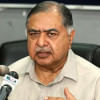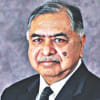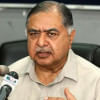Lower courts' freedom undermined by 3 rules

The lower courts have been made subordinate to the executive by three "cardinal" rules, Dr Kamal Hossain and five other leading jurists of the country said yesterday.
The protection of the independence of the judiciary has been undermined and the separation of power has been violated by the rules, they said in a joint statement, without naming the rules.
The other five jurists are Rafique-ul Huq, M Amir-Ul Islam, Mainul Hosein, Fida M Kamal and AF Hasan Ariff. The statement was issued on the occasion of Supreme Court Day today.
Talking to The Daily Star, barrister M Amir-Ul Islam and advocate AF Hasan Ariff said the three rules included recently-formulated “Bangladesh Judicial Service (Discipline) Rules 2017”.
On December 11 last year, the government issued a gazette notification on the discipline of lower court judges, keeping the president's authority over their conduct.
The president will make necessary decisions in consultation with the Supreme Court, and the law ministry will implement those, a high official of the ministry said interpreting the contents of “Bangladesh Judicial Service (Discipline) Rules 2017”.
Yesterday, the six jurists in their statement said, “While we recall the important decision in Masdar Hossain's case, we cannot but express grave concern that the protection extended by that decision to the independence of the judiciary has been undermined by three cardinal Rules as are to be made under Article 115 & 116 [of the constitution] for the subordinate judiciary now framed under Article 133 under the Execute Chapter, thereby treating the Judges of the subordinate judiciary having been made subordinate to the executive branch.
"It has thus violated the scheme for separation of power further sanctified by the judgment in the Masder Hossain case.
“Those Rules as are mandated under the constitution now framed in a non-transparent manner and without due deliberations, nor following effective consultations with both Divisions of the Supreme Court of Bangladesh.”
The legal experts also said, “The subordinate judiciaries' appointment and transfer have thus been placed under the Executive Branch [Chapter-II - The Prime Minister and Cabinet]. This being done while the seat of chief justice kept vacant creating a void thereby in the republic itself. In the process judiciary has been placed under the authority and control of the Executive Branch taking the country back in 1999 in the pre 'Masder Hossain' era."
The statement adds, “We are observing Supreme Court Day on January 2, 2018, in commemoration of the opening of this Supreme Court by Bangabandhu Sheikh Mujibur Rahman on 18th December 1972.
At this juncture the Supreme Court is without its head [chief justice] and the judicial organ of the republic continue to remain without the chief justice.
“Yet, on this occasion we feel proud of sharing the rich heritage of Bangladesh Supreme Court while protecting and defending fundamental rights of the people. [SC] also rose to the occasions in preserving, protecting and defending the constitution along with integrity, independence and separation of judiciary, with particular mention to some of those judgments among many others (a) holding the Eighth Amendment to the Constitution purporting to fragment the High Court Division having been declared as ultra vires to the unitary character of the republic when the High Court Division was fragmented in Seven Divisional Head Quarters (b) the fifth and seventh amendment cases, declaring Martial Law proclamation ultra vires to the constitution, (c) the decision which saved the Chittagong Port from being leased out for over 100 years to a foreign company , (d) the decision which declared void the voters' list which had contained more than 1,40,00,00 fake voters in 2007 and indeed the recent judgment holding the sixteenth amendment [parliamentary removal of judges of Supreme Court] to be void."
The jurists said those landmark decisions continue to act as the beacon for upholding the supremacy of the constitution for all times to come by defining and identifying basic structure of the constitution which are not amenable to any amendment.
For the first time in history, Bangladesh is celebrating the Supreme Court Day today.
The SC authorities are set to organise a meeting at the Supreme Court Judges' Sports Complex this afternoon to mark the day.
President Abdul Hamid is scheduled to attend the meeting as chief guest, while Justice Md Abdul Wahhab Miah, who is discharging the duties of the chief justice, and other judges of both the Appellate and the High Court divisions of the SC will attend the occasion.

 For all latest news, follow The Daily Star's Google News channel.
For all latest news, follow The Daily Star's Google News channel. 







Comments